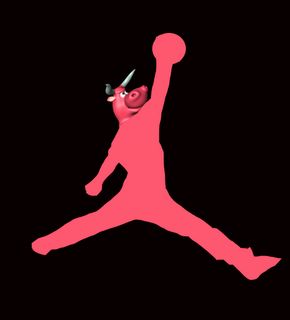warning: This is a dry post.
SINGAPORE (Dow Jones)--Singapore department stores are struggling to reinvent themselves as they wrestle with steadily declining sales and a trend toward excluding anchor tenants from new shopping developments.
Robinson & Co. (R02.SG) - the owner of Robinson department stores, John Little and Marks & Spencer stores in Singapore and Malaysia - has said it is refocusing the branding of the three stores, and updating interior layout and design.
"We are facing great risk with more people looking for brand experience, as consumers get more discerning and sophisticated," said Shia Yew Peck, general manager for finance and administration at Robinson.
"It is important for a department store to constantly reinvent itself such that it doesn't look tired," he said.
Once retailing powerhouses, providing consumers with a breadth of choice smaller competitors couldn't match, department stores now struggle to cater to niche demands of a new breed of consumers.
In Singapore, the sales and earnings of major department store owners have been lackluster for years. Robinson has posted steadily decreasing earnings since 2000, with the exception of 2004. In an effort to "build a sustainable business," Robinson said in its annual report that it is positioning its flagship Robinson store as Singapore's premier retailer with a merchandise mix that will appeal to women in their 30s and above.
John Little will be branded as a discount store for the cost-conscious young family, while Marks & Spencer will be positioned in the middle. The group has cut prices at M&S and brought in a wider variety of products from the U.K. chain, including petite sizes in womenswear.
Robinson declined to discuss the impact of these moves on its earnings or sales outlook or specify a time frame for the changes.
"Departmental stores have to position themselves in either the specialty store category or mass-merchandiser category, without losing the one-stop-decent-shopping attribute," Krishnan said.
They should also try to maintain some element of exclusivity by not having more than three stores in Singapore, according to Wee Chow Hou, a professor at Nanyang Business School.
Why am I not surprise at all.
The only reason why Robinson is not doing as well as it should is because of Singaporean's patience of waiting for their "Sales worth waiting for... 5 times a year not including warehouse sales 2 times a year" Seriously, with one sale every other quarter, it doesn't take that long really.
I remember few years ago, Robinson sale is something everyone really look forward to, at least for myself. You get quality stuffs at good prices with good customer service. There is no reason not to go. And such sale probably happens once a year. That too, gives an impression of snobbishness, which some shoppers really like. It's that exclusivity that draws consumers to such stores.
Now, if I have to spend money during non-sales period. I would go to Takashimaya. Because I do not want to buy something only to find out that they will have sales the coming weekend. Taka seems to give me that assurance that it wouldn't happen. Not for Robinson.
Merchandise plays a part too.
In fact, all departmental stores are losing their charm to attract consumers. You see the same old merchandise be it in Metro, Takashimaya, Robinson or Isetan. Does it really matter where I buy the product?
I personally prefer to shop in a Mall with different shops, thus different merchandise, than say in a Departmental Store. You somehow do not see the Departmental store changing the whole merchandising as they usually stick with the same old distributors.
For a shopping mall, it's different. While landlords tend to go for the modus operanti of "who pays more, get it", they sometimes do give exceptions to interesting concepts. Thus you almost could see some new outlets every 3 years when the lease it up. Though the main tenants might be the same, but they constantly tries to get new labels in. Eg includes WingTai who is owns label like G2000, U2 and Fox labels. Or Royal Sporting House who owns label like Mango, Zara. Or FJ Benjamin who owns Guess and soon Banana Republic and Gap.
Such big tenants needed new blood to ensure they could survive the tough retail climate, the hard-to-please consumers and the new-concept-hungry landlords. If they do not constantly bring in new labels, they risk getting boot out of a local mall by the landlord if another retailer manages to clinch a new label.
Thus freshness is ensured. Thus consumers get a new lease of retail therapy they craved. The landlord is happy, the tenant is happy, the consumer is happy.
Except the Departmental Stores.
Subscribe to:
Post Comments (Atom)

No comments:
Post a Comment